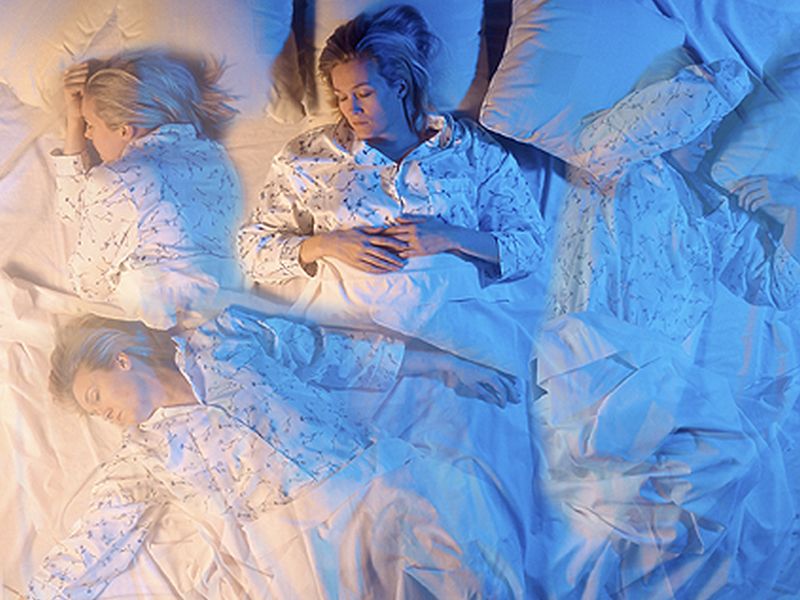
Tuesday, July 26, 2016

TUESDAY, July 26, 2016 (HealthDay News) -- Menopause, and the insomnia that often goes along with it, can speed aging in women, two new studies suggest.
"For decades, scientists have disagreed over whether menopause causes aging or aging causes menopause," said Steve Horvath, senior author of both papers.
"It's like the chicken or the egg: which came first? Our study is the first to demonstrate that menopause makes you age faster," said Horvath, a professor of human genetics and biostatistics at the David Geffen School of Medicine at the University of California, Los Angeles.
He and his colleagues said they found that menopause boosts cellular aging by an average of 6 percent.
"That doesn't sound like much, but it adds up over a woman's life span," Horvath added in a UCLA news release.
For example, a woman who began early menopause at age 42 would be a full year older biologically at age 50 than a woman that same age who began menopause at age 50.
Insomnia, which often accompanies menopause, can also lead to faster biological aging, according to the second study.
"Not getting restorative sleep may do more than just affect our functioning the next day; it might also influence the rate at which our biological clock ticks," said Judith Carroll. She is an assistant professor of psychiatry at UCLA's Semel Institute for Neuroscience and Human Behavior, and first author of the sleep study.
"In the women we studied, those reporting symptoms such as restless sleep, waking repeatedly at night, having difficulty falling asleep and waking too early in the morning tended to be older biologically than women of similar chronological age who reported no symptoms," she said.
The studies included more than 5,000 women and were published July 25 in the journalsProceedings of the National Academy of Sciences and Biological Psychiatry.
SOURCE: University of California, Los Angeles, news release, July 25, 2016
HealthDay
Copyright (c) 2016 HealthDay. All rights reserved.
News stories are provided by HealthDay and do not reflect the views of MedlinePlus, the National Library of Medicine, the National Institutes of Health, the U.S. Department of Health and Human Services, or federal policy.
- More Health News on:
- Menopause





























.png)












No hay comentarios:
Publicar un comentario